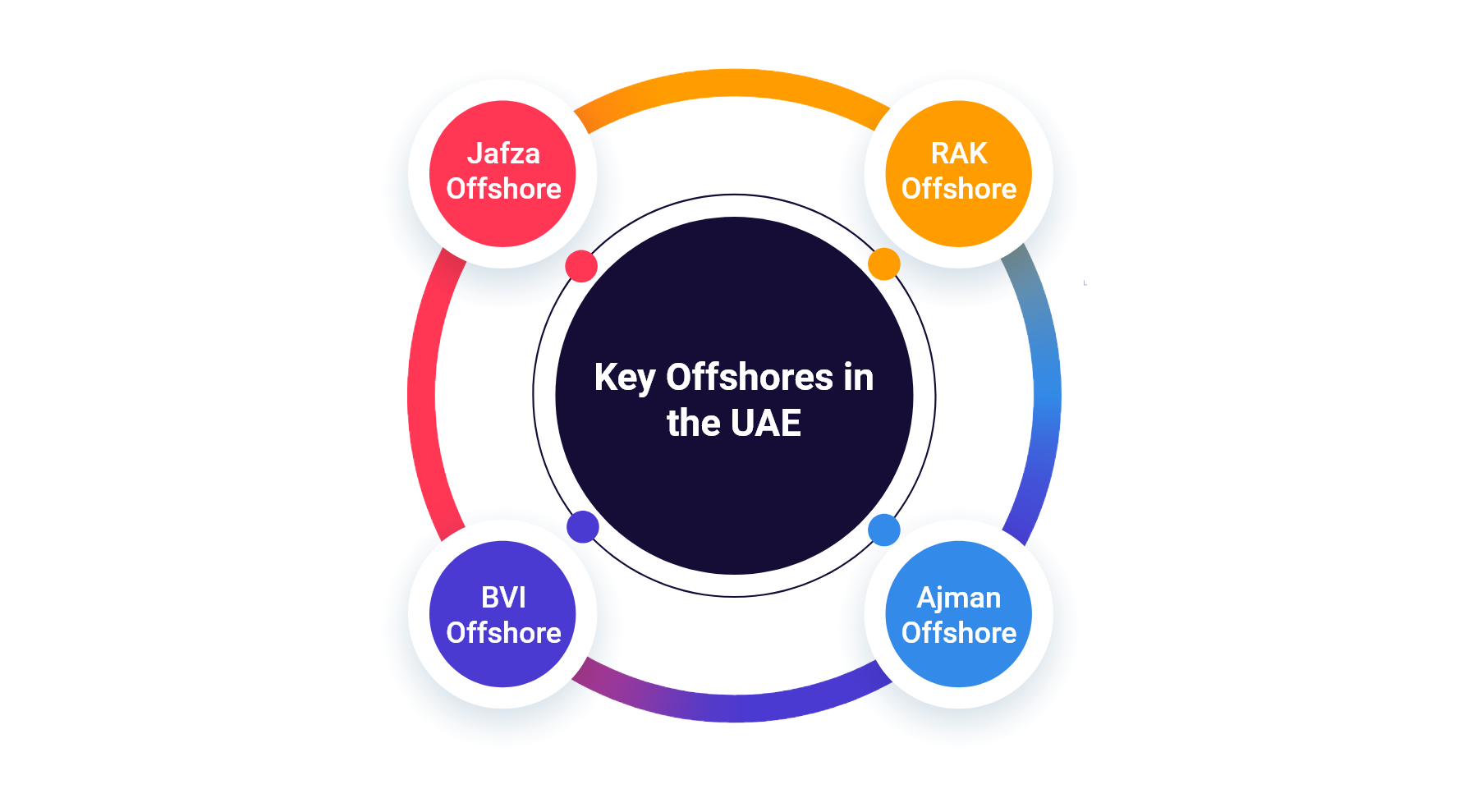Strategic Moves: Your Blueprint for Successful Formation of Offshore Companies
Strategic Moves: Your Blueprint for Successful Formation of Offshore Companies
Blog Article
Professional Offshore Business Management
With globalization and the enhancing importance of international service, even more companies are checking out the benefits of establishing and handling offshore entities. In this conversation, we will check out the advantages of overseas business administration, key factors to consider for offshore procedures, and efficient techniques to make certain compliance and minimize dangers.

Advantages of Offshore Firm Management
There are several significant benefits to overseas business management that can greatly profit businesses seeking worldwide expansion and monetary optimization. Offshore jurisdictions usually supply positive tax programs, consisting of reduced or absolutely no company tax obligations, decreased funding gains taxes, and exceptions from particular tax obligations on dividends and interest.
Offshore firm monitoring enables organizations to keep a greater degree of personal privacy and privacy in their financial events. Offshore territories commonly have stringent regulations and guidelines in location to safeguard the identification of business proprietors and investors, making it challenging for third events to gain access to sensitive info.
In addition, overseas business management provides services the opportunity to access an international market. By developing an offshore existence, business can broaden their reach and use brand-new markets without the need for substantial physical framework or establishment costs. This flexibility allows companies to swiftly adapt to changing market conditions and make use of brand-new growth possibilities.
Secret Considerations for Offshore Procedures
When engaging in overseas company administration is the careful factor to consider of vital elements for effective overseas operations,One essential facet to ponder. These factors to consider play a crucial role in guaranteeing the smooth performance and profitability of the offshore endeavor. Firstly, it is very important to assess the political and financial stability of the offshore territory. Investing in a economically prosperous and politically steady territory decreases the danger of unexpected policy adjustments or financial downturns that can negatively affect the service. In addition, comprehending the lawful structure and regulatory atmosphere of the overseas territory is vital. Various territories have varying levels of regulatory demands and conformity requirements. It is essential to make sure that the picked territory straightens with the firm's purposes and objectives. An additional essential consideration is the accessibility of a experienced and trustworthy workforce. Offshore operations need an experienced labor force that can successfully manage the everyday procedures and add to the development of the company. The facilities and technological capabilities of the overseas jurisdiction need to be reviewed. Appropriate infrastructure and accessibility to sophisticated technology are important for efficient procedures. Taking into consideration the tax obligation ramifications and motivations used by the offshore jurisdiction is essential - formation of offshore companies. A beneficial tax regimen can supply considerable cost savings and enhance the total productivity of the overseas venture. By thoroughly thinking about these crucial aspects, companies can maximize their overseas operations and achieve long-term success.
Making Sure Compliance With Regional Rules
To make certain conformity with neighborhood regulations, firms engaging in overseas procedures must thoroughly adhere and understand to the specific lawful demands and regulative structure of the offshore territory. Offshore jurisdictions typically have their very own collection of laws and laws that regulate various elements of service operations, including business development, taxation, employment, and monetary reporting. It is crucial for business to acquaint themselves with these guidelines to avoid potential lawful concerns and fines.
Among the initial actions in making certain compliance is conducting extensive study on the lawful and regulative landscape of the chosen offshore jurisdiction - formation of offshore companies. This entails researching the local regulations, understanding the requirements for business registration and licensing, and identifying any specific regulations that might apply to the firm's market or business tasks

As soon as the lawful requirements are recognized, companies have to take proactive measures to adhere to them. This consists of obtaining the essential permits, licenses, and approvals before starting operations, and making certain ongoing compliance with tax obligation and reporting obligations. It is likewise crucial to stay upgraded with any type of changes or modifications to the guidelines in order to remain certified.
To help with conformity, companies might think about involving the solutions of regional lawful and accounting experts who are fluent in the overseas jurisdiction's policies. These professionals can give assistance and aid in navigating the complicated legal landscape, aiding companies to prevent conformity pitfalls and make sure smooth procedures.
Tax Planning Methods for Offshore Organizations
Efficient tax obligation preparation is important for overseas businesses to optimize their tax obligations and optimize their economic effectiveness. Offshore companies frequently have the advantage of being subject to beneficial tax obligation regimens, which can considerably lower their tax obligation worry. However, to completely gain from these benefits, it is crucial to establish reliable tax preparation approaches.
One common tax planning technique for offshore companies is using tax treaties. These treaties are contracts between countries that aim to stop dual tax and provide tax obligation relief for companies running in several territories (formation of offshore companies). By making the most of these treaties, offshore businesses can lessen their tax obligations and make sure that they are not paying taxes on the very same revenue in numerous countries
Another strategy is establishing a tax-efficient company framework. This entails establishing a holding business in a tax-friendly jurisdiction and structuring business procedures here in a method that reduces tax obligation responsibilities. By very carefully preparing the ownership and control of the overseas firm, it is possible to reduce tax obligations on revenues, dividends, and funding gains.
Additionally, overseas businesses can take part in transfer rates methods to enhance their tax obligation setting. Transfer pricing entails figuring out the prices at which items, services, and copyright are transferred in between associated entities within the exact same international group. By establishing transfer costs at an optimal degree, overseas services can allocate revenues to low-tax territories, lessening their overall tax obligation liability.
Lessening Risks in Offshore Workflow
Offshore businesses need to prioritize lessening web threats in their operations to make certain long-term success and monetary security. Operating in an offshore territory offers distinct obstacles and uncertainties that need mindful monitoring. To successfully decrease risks, offshore organizations should adopt a proactive strategy by executing durable risk administration strategies.
One secret element of threat reduction is conducting complete due persistance before participating in any type of overseas deals or collaborations. This entails researching and verifying the credibility, financial stability, and legal compliance of prospective service companions or company. By extensively vetting these entities, overseas organizations can reduce the risk of fraudulent activities or organization with immoral procedures.
In addition, overseas organizations should carry out extensive internal control systems to detect and protect against any possible illegal tasks within the organization. This includes establishing clear plans and treatments, segregation of responsibilities, regular monitoring, and inner audits. By keeping a durable internal control framework, overseas services can alleviate the danger of internal fraudulence and unapproved activities.
Additionally, overseas services ought to focus on conformity with international regulations and anti-money laundering (AML) actions. Remaining up-to-date with advancing regulatory needs and applying efficient AML treatments can lessen the risk of lawful consequences and reputational damage.
Finally, offshore organizations ought to consider acquiring appropriate insurance policy protection to safeguard versus unpredicted events such as all-natural catastrophes, political instability, or legal conflicts. Insurance plan customized to offshore procedures can provide monetary payment and support during times of situation, making sure go to this website the connection of business tasks.

Verdict
Finally, overseas business administration offers different benefits such as tax obligation planning techniques, minimizing risks, and ensuring compliance with neighborhood policies. Nonetheless, it is essential for businesses to carefully consider vital variables for overseas operations and navigate the intricacies of various territories. By implementing reliable administration techniques and staying current with regional policies, organizations can efficiently operate offshore and gain the advantages of international organization chances.
In this discussion, we will certainly explore the benefits of offshore firm management, essential considerations for overseas operations, and effective approaches to ensure compliance and minimize risks.One vital facet to contemplate when engaging in offshore business administration is the cautious consideration of essential factors for successful offshore operations.To make certain conformity with local policies, firms involving in offshore operations must completely stick and comprehend to the certain legal needs and regulative framework of the offshore territory. Offshore territories generally have their very own set of legislations and regulations that regulate different facets of company operations, consisting of firm formation, taxation, employment, and monetary coverage. By implementing effective administration approaches and staying up-to-date with regional laws, businesses can successfully operate offshore and enjoy the benefits of worldwide service possibilities.
Report this page